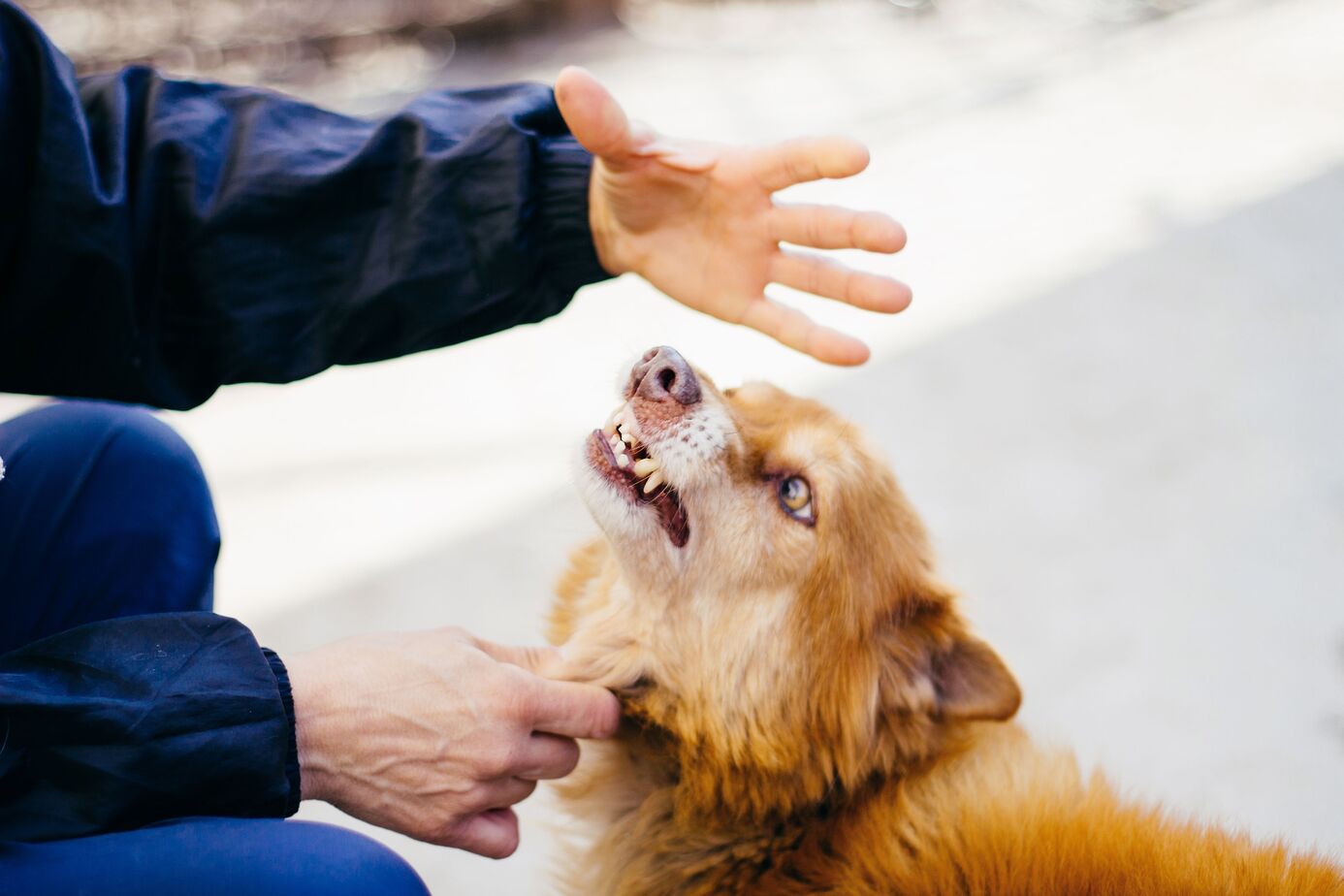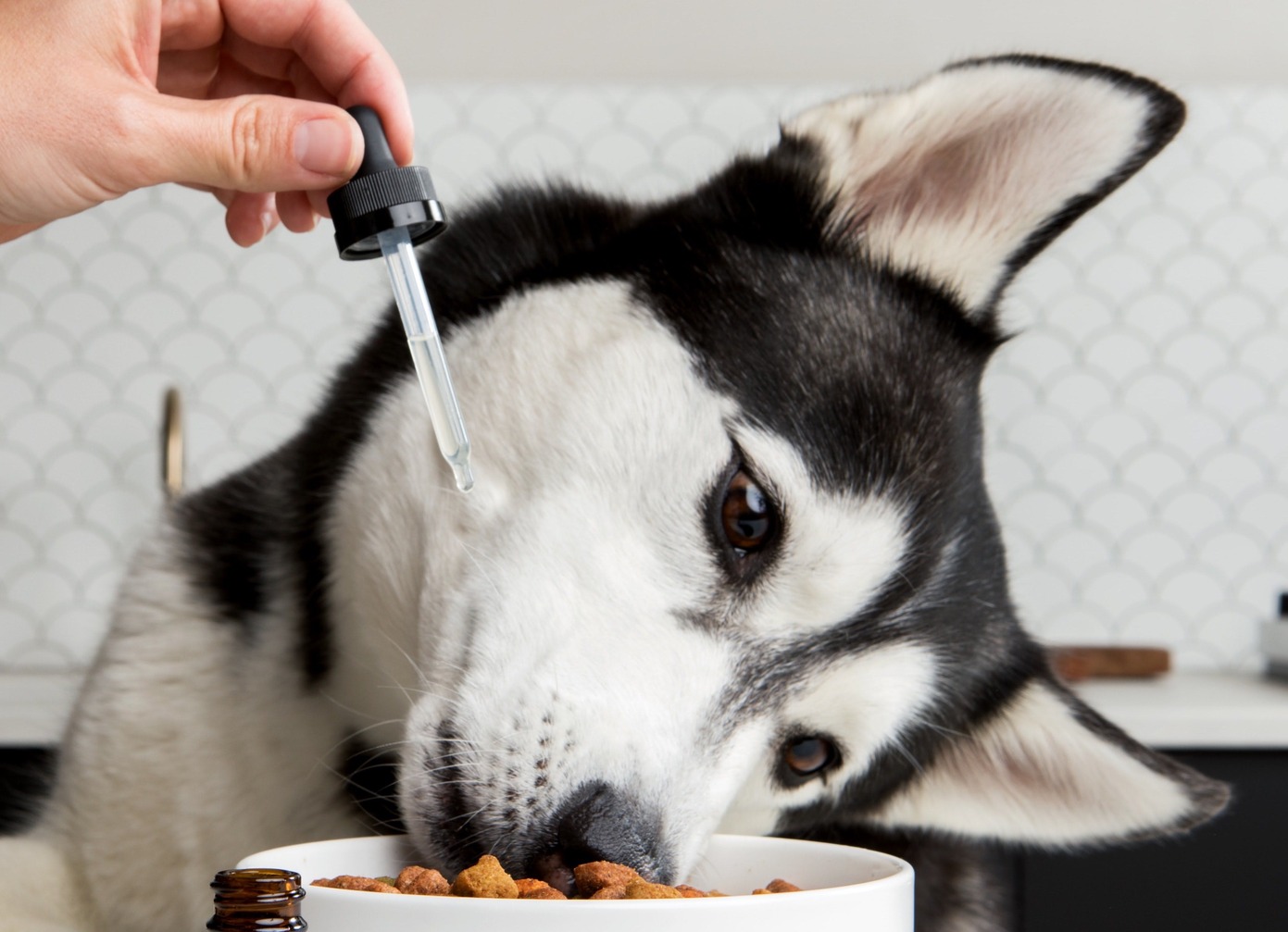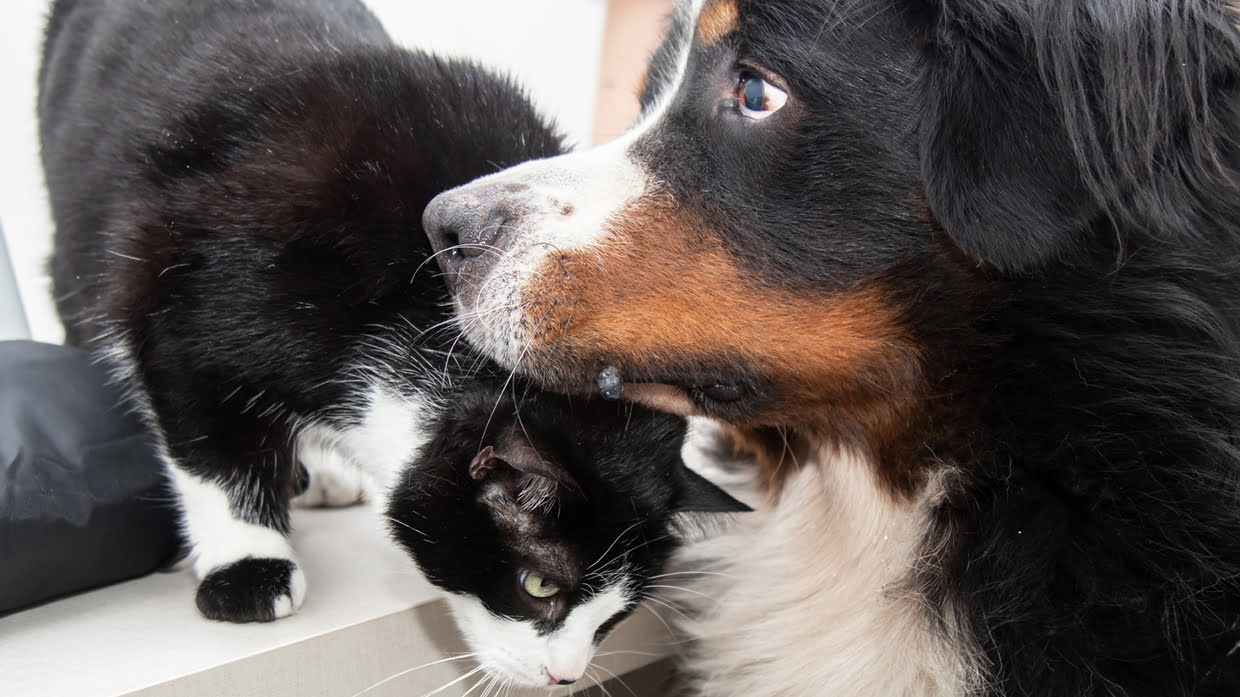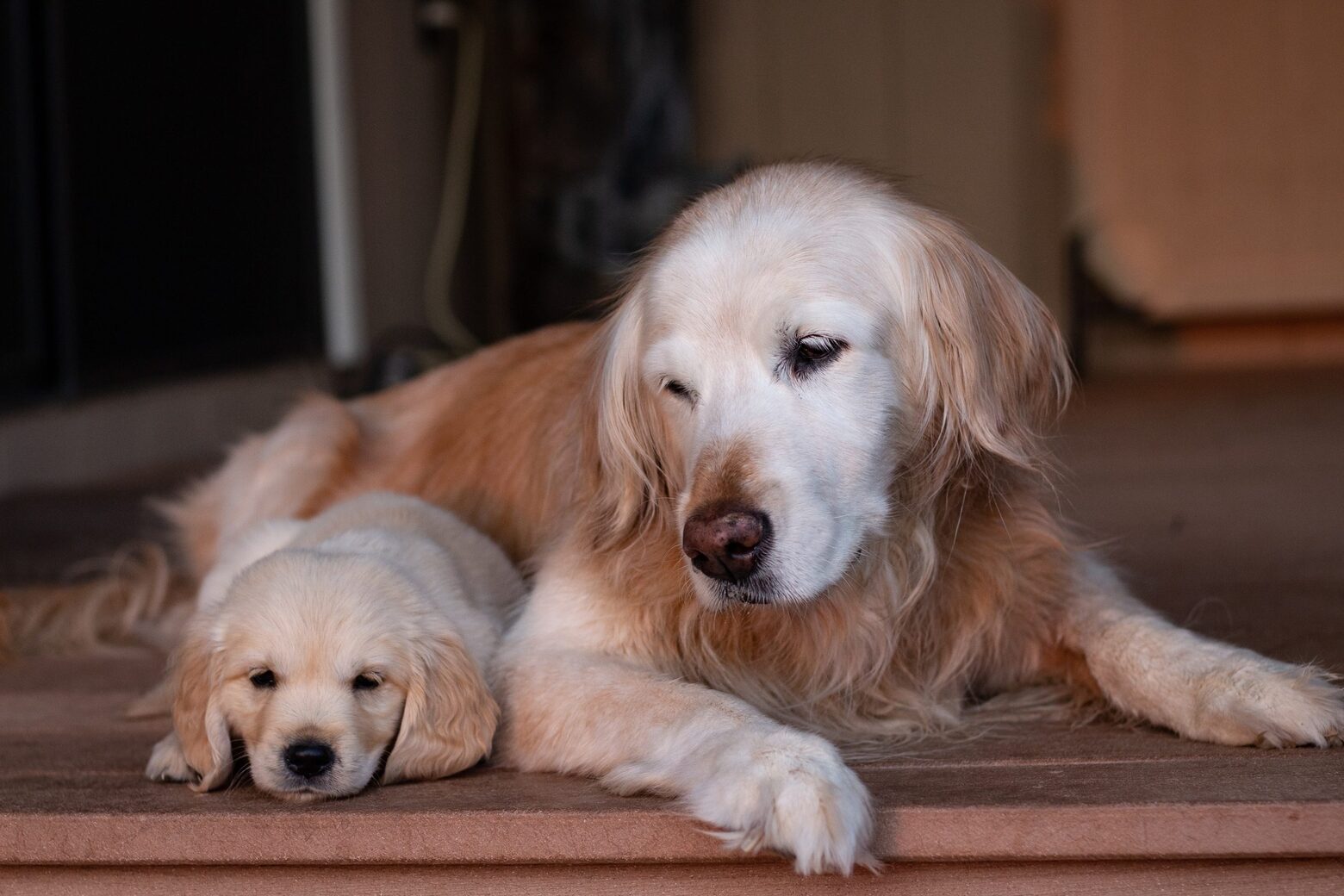Home>Health & Wellness>Behavior & Cognitive Care>How To Get My Senior Dog To Gain Weight


Behavior & Cognitive Care
How To Get My Senior Dog To Gain Weight
Published: February 1, 2024
Discover effective strategies for helping your senior dog gain weight with behavior and cognitive care tips. Learn how to support your aging pet's nutritional needs.
(Many of the links in this article redirect to a specific reviewed product. Your purchase of these products through affiliate links helps to generate commission for Pawsomeoldies.com, at no extra cost. Learn more)
Table of Contents
Introduction
As our beloved canine companions age, they may experience a range of health challenges, including weight loss. Senior dogs are often susceptible to a decrease in muscle mass and fat stores, which can lead to a noticeable decline in their overall well-being. Addressing weight loss in senior dogs requires a comprehensive approach that encompasses dietary adjustments, regular exercise, and close monitoring. In this article, we will delve into the various strategies and considerations for helping senior dogs regain and maintain a healthy weight. Understanding the underlying reasons for weight loss, consulting with a veterinarian, adjusting the diet and feeding schedule, incorporating supplements, encouraging regular exercise, and closely monitoring progress are all crucial components of this holistic approach. By exploring these aspects in detail, we aim to provide valuable insights and practical guidance for pet owners seeking to support the well-being of their senior canine companions.
Understanding the reasons for weight loss in senior dogs
Weight loss in senior dogs can be attributed to various factors, and understanding these reasons is crucial for devising an effective strategy to address this issue. One common cause of weight loss in senior dogs is a decrease in muscle mass and a reduction in fat stores. As dogs age, their metabolism may slow down, leading to a decline in their ability to maintain a healthy weight. Additionally, senior dogs may experience a decrease in appetite, which can further contribute to weight loss. Dental issues, such as tooth decay or gum disease, can make eating a painful or uncomfortable experience for senior dogs, leading to reduced food intake and subsequent weight loss.
Furthermore, underlying health conditions such as kidney disease, diabetes, thyroid imbalances, or cancer can impact a senior dog's weight. These conditions may affect the dog's metabolism, nutrient absorption, or energy levels, ultimately leading to weight loss. Additionally, gastrointestinal problems, including malabsorption disorders or inflammatory bowel disease, can hinder the dog's ability to absorb nutrients from food, resulting in weight loss despite consuming an adequate diet.
Behavioral and environmental factors also play a role in weight loss among senior dogs. Changes in the household, such as the introduction of a new pet or family member, relocation, or disruptions to the dog's routine, can cause stress and anxiety, leading to a decreased appetite and subsequent weight loss. Moreover, senior dogs may experience reduced mobility due to arthritis or other age-related conditions, impacting their ability to engage in physical activity and maintain muscle mass.
Understanding these multifaceted reasons for weight loss in senior dogs underscores the importance of a comprehensive approach to address this issue. By recognizing the underlying factors contributing to weight loss, pet owners and veterinarians can tailor interventions to support the specific needs of senior dogs and improve their overall well-being.
Consulting with a veterinarian
Consulting with a veterinarian is a crucial initial step in addressing weight loss in senior dogs. Veterinarians play a pivotal role in assessing the overall health of senior dogs, identifying underlying medical conditions, and devising personalized strategies to help them regain and maintain a healthy weight.
When a senior dog exhibits signs of weight loss or decreased appetite, scheduling a thorough veterinary examination is essential. During the consultation, the veterinarian will conduct a comprehensive physical examination to evaluate the dog's body condition, muscle mass, and overall health. This assessment may involve palpating the dog's body to assess muscle tone and identifying any areas of muscle wasting or fat loss. Additionally, the veterinarian may measure the dog's body weight and compare it to previous records to determine the extent of weight loss.
In addition to the physical examination, the veterinarian may inquire about the dog's dietary habits, exercise routine, and any recent changes in behavior or environment. Providing detailed information about the dog's daily diet, including the type of food, portion sizes, and feeding schedule, can aid the veterinarian in understanding the dog's nutritional intake and identifying potential areas for improvement.
Furthermore, the veterinarian may recommend diagnostic tests, such as blood work, urinalysis, or imaging studies, to assess the dog's organ function, detect underlying medical conditions, and rule out any systemic issues contributing to weight loss. These diagnostic evaluations can provide valuable insights into the dog's overall health status, including the functioning of vital organs and the presence of any metabolic or hormonal imbalances.
Based on the findings from the physical examination and diagnostic tests, the veterinarian can collaborate with the pet owner to develop a tailored plan to address the senior dog's weight loss. This plan may encompass dietary modifications, supplementation, medication, and lifestyle adjustments to support the dog's nutritional needs and overall well-being. Moreover, the veterinarian can offer guidance on selecting appropriate high-quality commercial diets or formulating homemade diets tailored to the specific nutritional requirements of senior dogs.
Regular follow-up consultations with the veterinarian are essential to monitor the dog's progress, make any necessary adjustments to the treatment plan, and address any emerging health concerns. By working closely with a veterinarian, pet owners can gain valuable support and expertise in navigating the complexities of managing weight loss in senior dogs, ultimately promoting the dog's health and vitality in their golden years.
Adjusting the diet and feeding schedule
Adjusting the diet and feeding schedule is a fundamental aspect of addressing weight loss in senior dogs. This process involves carefully evaluating the dog's nutritional needs, making strategic dietary modifications, and establishing a structured feeding routine to support healthy weight gain and overall well-being.
When devising a tailored diet for a senior dog experiencing weight loss, it is essential to prioritize high-quality, nutrient-dense foods that are easily digestible and palatable. Commercial dog foods specifically formulated for senior dogs often contain optimal levels of essential nutrients, including protein, fats, vitamins, and minerals, to support their unique dietary requirements. Additionally, these specialized diets may incorporate ingredients that promote joint health, digestive function, and overall vitality, catering to the specific needs of aging dogs.
In cases where a senior dog has experienced a decrease in appetite, offering highly palatable and aromatic foods can help stimulate their interest in eating. Adding warm water or low-sodium broth to dry kibble can enhance its aroma and texture, making it more appealing to dogs with reduced appetite. Moreover, incorporating small amounts of lean meats, such as boiled chicken or turkey, into the dog's meals can provide an additional protein source and entice them to consume their food more eagerly.
Furthermore, adjusting the feeding schedule to provide multiple small meals throughout the day, rather than one or two large meals, can support senior dogs in maintaining steady energy levels and optimizing nutrient absorption. Dividing the daily food portion into several smaller servings spaced evenly throughout the day can prevent digestive discomfort and help manage fluctuations in blood sugar levels, especially for senior dogs with underlying health conditions such as diabetes or gastrointestinal sensitivities.
In addition to modifying the type of food and feeding frequency, carefully monitoring the dog's caloric intake is crucial for ensuring they receive adequate nutrition to support healthy weight gain. Calculating the dog's daily caloric requirements based on their age, weight, activity level, and overall health status can guide pet owners in determining the appropriate portion sizes and calorie distribution for their senior dogs. This personalized approach to portion control can prevent overfeeding or underfeeding, promoting gradual and sustainable weight gain while avoiding unnecessary strain on the dog's digestive system.
By adjusting the diet and feeding schedule in accordance with the specific needs of senior dogs, pet owners can play a proactive role in supporting their canine companions' nutritional well-being and helping them achieve a healthy weight. This thoughtful approach, combined with regular veterinary guidance and monitoring, can contribute to the overall health and vitality of senior dogs, enhancing their quality of life in their later years.
Adding supplements to the diet
Incorporating supplements into the diet of senior dogs can play a pivotal role in supporting their overall health and addressing specific nutritional needs associated with weight loss. As dogs age, their bodies may require additional support in the form of vitamins, minerals, and other dietary supplements to promote optimal well-being and help them maintain a healthy weight.
One essential supplement for senior dogs experiencing weight loss is omega-3 fatty acids, which offer a range of benefits for joint health, cognitive function, and overall vitality. Omega-3 fatty acids, commonly sourced from fish oil or algae, possess anti-inflammatory properties that can alleviate discomfort associated with arthritis and other age-related joint issues. Additionally, these fatty acids support cognitive function, cardiovascular health, and immune system function, contributing to the holistic well-being of senior dogs.
Furthermore, senior dogs may benefit from the inclusion of multivitamin and mineral supplements in their diet to address potential nutrient deficiencies and support their overall nutritional requirements. As aging dogs may experience changes in their ability to absorb and utilize certain nutrients, supplementing their diet with essential vitamins such as vitamin E, vitamin D, and B-complex vitamins can help bridge potential gaps in their nutritional intake. Similarly, minerals such as calcium, phosphorus, and magnesium are crucial for maintaining bone health and supporting metabolic processes, making them valuable additions to the diet of senior dogs.
Moreover, specialized supplements designed to promote digestive health and enhance nutrient absorption can be beneficial for senior dogs with gastrointestinal sensitivities or malabsorption issues. Probiotics, prebiotics, and digestive enzymes can aid in maintaining a healthy gut microbiome, improving nutrient assimilation, and supporting digestive function, ultimately contributing to the dog's ability to derive maximum nutritional benefit from their diet.
In addition to these targeted supplements, senior dogs with specific health concerns, such as kidney disease or thyroid imbalances, may require condition-specific supplements to address their unique needs. Working closely with a veterinarian to identify the most appropriate supplements for a senior dog's individual health profile is essential, as it ensures that the supplements are tailored to address specific health considerations and complement the overall treatment plan.
By thoughtfully integrating supplements into the diet of senior dogs, pet owners can provide comprehensive support for their canine companions' nutritional needs and overall well-being. These supplements, when combined with a balanced diet, regular exercise, and veterinary guidance, can contribute to the maintenance of a healthy weight and the promotion of vitality in senior dogs, enhancing their quality of life as they navigate their golden years.
Encouraging regular exercise
Encouraging regular exercise in senior dogs is a vital component of supporting their overall health and well-being, particularly in the context of addressing weight loss. While it is essential to approach exercise with consideration for the dog's age and physical limitations, incorporating regular physical activity into their routine can yield numerous benefits, including improved muscle tone, enhanced cardiovascular health, and the maintenance of a healthy weight.
When devising an exercise regimen for senior dogs, it is crucial to prioritize low-impact activities that minimize stress on their joints and muscles. Gentle walks, swimming, and controlled play sessions can provide valuable opportunities for senior dogs to engage in physical activity without placing excessive strain on their aging bodies. These activities not only promote muscle strength and flexibility but also stimulate mental alertness and emotional well-being, contributing to the dog's overall vitality.
Moreover, incorporating interactive games and puzzle toys into the daily routine can encourage senior dogs to engage in light physical activity while stimulating their cognitive abilities. Activities such as hide-and-seek with treats, gentle tug-of-war games, and interactive feeding puzzles can provide mental stimulation and encourage movement, fostering a holistic approach to maintaining the dog's physical and mental health.
Additionally, regular, supervised exercise sessions can strengthen the bond between senior dogs and their owners, providing opportunities for positive reinforcement, social interaction, and emotional support. Engaging in gentle physical activities together can enhance the dog's sense of security and companionship while promoting a positive and enriching lifestyle in their senior years.
It is important to note that the duration and intensity of exercise should be tailored to the individual needs and capabilities of each senior dog. Monitoring their response to physical activity and adjusting the exercise regimen accordingly is essential for ensuring their comfort and well-being. Furthermore, scheduling regular veterinary check-ups to assess the dog's physical condition and address any emerging health concerns is crucial for maintaining a safe and effective exercise routine.
By encouraging regular exercise in a mindful and considerate manner, pet owners can actively contribute to the overall health and happiness of their senior canine companions. This proactive approach, combined with a balanced diet, appropriate supplementation, and veterinary guidance, can significantly impact the well-being of senior dogs, supporting their weight management efforts and enhancing their quality of life as they age gracefully.
Monitoring progress and making adjustments
Monitoring the progress of a senior dog's weight management journey is a dynamic and ongoing process that requires attentiveness, regular assessment, and the flexibility to make necessary adjustments. By closely tracking the dog's response to dietary changes, exercise routines, and supplementation, pet owners can gain valuable insights into the effectiveness of the implemented strategies and make informed decisions to optimize their senior dog's well-being.
Regular weigh-ins serve as a fundamental tool for monitoring a senior dog's weight management progress. By recording the dog's body weight at consistent intervals, such as weekly or bi-weekly, pet owners can track any fluctuations and assess the trajectory of weight gain or loss. This quantitative data provides tangible evidence of the dog's response to the implemented interventions, guiding pet owners and veterinarians in evaluating the effectiveness of the current approach and determining the need for adjustments.
In addition to tracking body weight, observing the dog's body condition and muscle tone is essential for gauging their overall physical health. Assessing the dog's body composition, including the presence of muscle wasting or changes in fat distribution, can offer valuable insights into the impact of the weight management strategies on the dog's body composition. Furthermore, monitoring the dog's energy levels, appetite, and overall demeanor can provide qualitative indicators of their well-being and response to the implemented interventions.
Regular communication with the veterinarian is integral to the process of monitoring progress and making informed adjustments. Sharing detailed updates on the dog's weight, body condition, dietary habits, and exercise routines enables the veterinarian to provide tailored guidance and recommendations. Based on the observed progress and any emerging concerns, the veterinarian can offer insights into potential modifications to the diet, adjustments to supplementation, or refinements to the exercise regimen, ensuring that the senior dog's evolving needs are effectively addressed.
Making adjustments to the weight management plan based on the observed progress is a proactive and responsive approach to supporting the senior dog's well-being. Whether it involves fine-tuning the caloric content of the diet, modifying the types of supplements, or adapting the exercise routine to accommodate the dog's physical capabilities, these adjustments are essential for optimizing the effectiveness of the overall weight management strategy.
By consistently monitoring the senior dog's progress, remaining attentive to their evolving needs, and collaborating closely with the veterinarian, pet owners can navigate the process of weight management with agility and precision. This iterative approach to monitoring and making adjustments empowers pet owners to provide comprehensive support for their senior canine companions, promoting their health, vitality, and overall quality of life in their golden years.
Conclusion
In conclusion, addressing weight loss in senior dogs requires a multifaceted and personalized approach that encompasses understanding the underlying reasons for weight loss, consulting with a veterinarian, adjusting the diet and feeding schedule, adding supplements, encouraging regular exercise, and monitoring progress. By recognizing the complex interplay of factors contributing to weight loss in senior dogs, pet owners and veterinarians can collaborate to devise tailored strategies that support the unique needs of aging canine companions.
Understanding the multifaceted reasons for weight loss in senior dogs underscores the importance of a comprehensive approach to address this issue. By recognizing the underlying factors contributing to weight loss, pet owners and veterinarians can tailor interventions to support the specific needs of senior dogs and improve their overall well-being.
Consulting with a veterinarian is a crucial initial step in addressing weight loss in senior dogs. Veterinarians play a pivotal role in assessing the overall health of senior dogs, identifying underlying medical conditions, and devising personalized strategies to help them regain and maintain a healthy weight.
Adjusting the diet and feeding schedule is a fundamental aspect of addressing weight loss in senior dogs. This process involves carefully evaluating the dog's nutritional needs, making strategic dietary modifications, and establishing a structured feeding routine to support healthy weight gain and overall well-being.
Incorporating supplements into the diet of senior dogs can play a pivotal role in supporting their overall health and addressing specific nutritional needs associated with weight loss. As dogs age, their bodies may require additional support in the form of vitamins, minerals, and other dietary supplements to promote optimal well-being and help them maintain a healthy weight.
Encouraging regular exercise in senior dogs is a vital component of supporting their overall health and well-being, particularly in the context of addressing weight loss. While it is essential to approach exercise with consideration for the dog's age and physical limitations, incorporating regular physical activity into their routine can yield numerous benefits, including improved muscle tone, enhanced cardiovascular health, and the maintenance of a healthy weight.
Monitoring the progress of a senior dog's weight management journey is a dynamic and ongoing process that requires attentiveness, regular assessment, and the flexibility to make necessary adjustments. By closely tracking the dog's response to dietary changes, exercise routines, and supplementation, pet owners can gain valuable insights into the effectiveness of the implemented strategies and make informed decisions to optimize their senior dog's well-being.
In essence, the comprehensive approach to addressing weight loss in senior dogs outlined in this article emphasizes the importance of individualized care, regular monitoring, and collaborative engagement with veterinary professionals. By integrating these strategies into the care of senior dogs, pet owners can provide holistic support that promotes healthy weight gain, enhances overall well-being, and fosters a fulfilling and vibrant life for their aging canine companions.














